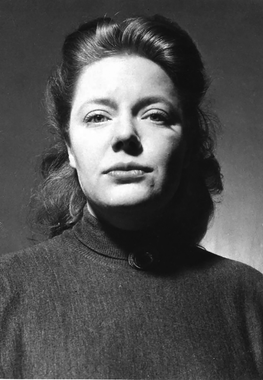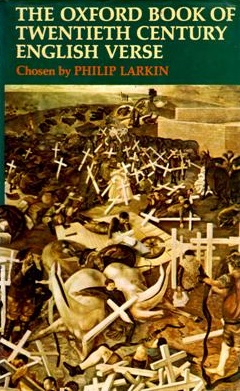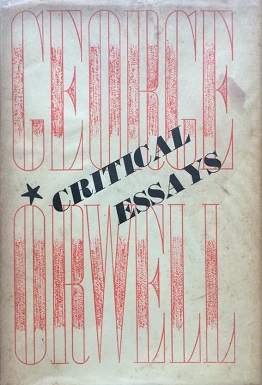
Eric Arthur Blair was an English novelist, poet, essayist, journalist, and critic who wrote under the pen name of George Orwell. His work is characterised by lucid prose, social criticism, opposition to totalitarianism, and support of democratic socialism.

Sonia Mary Brownell, better known as Sonia Orwell, was the second wife of writer George Orwell. Sonia is believed to be the model for Julia, the heroine of Nineteen Eighty-Four.

Cyril Vernon Connolly CBE was an English literary critic and writer. He was the editor of the influential literary magazine Horizon (1940–49) and wrote Enemies of Promise (1938), which combined literary criticism with an autobiographical exploration of why he failed to become the successful author of fiction that he had aspired to be in his youth.

Rudolf John Frederick Lehmann was an English publisher, poet and man of letters. He founded the periodicals New Writing and The London Magazine, and the publishing house of John Lehmann Limited.

The Oxford Book of Twentieth Century English Verse is a poetry anthology edited by Philip Larkin. It was published in 1973 by Oxford University Press with ISBN 0-19-812137-7. Larkin writes in the short preface that the selection is wide rather than deep; and also notes that for the post-1914 period it is more a collection of poems, than of poets. The remit was limited by him to poets with a period of residence in the British Isles. Larkin's generous selection of Thomas Hardy's poems has been noted for its influence on Hardy's later reputation. On the other hand, he was criticized, notably by Donald Davie, for his inclusion of "pop" poets such as Brian Patten. The volume contains works by 207 poets.
Hugh Gordon Porteus (1906–1993) was an influential reviewer of art and literature in the London of the 1930s, and also a poet. He was an admirer of Wyndham Lewis and wrote the first critical book on him, published in 1932. Lewis portrayed Porteus as the character "Rotter" Parkinson in his novel Self Condemned.
"Such, Such Were the Joys" is a long autobiographical essay by the English writer George Orwell.

The Architectural Review is a monthly international architectural magazine. It has been published in London since 1896. Its articles cover the built environment – which includes landscape, building design, interior design and urbanism – as well as theory of these subjects.
Encounter was a literary magazine founded in 1953 by poet Stephen Spender and journalist Irving Kristol. The magazine ceased publication in 1991. Published in the United Kingdom, it was an Anglo-American intellectual and cultural journal, originally associated with the anti-Stalinist left. The magazine received covert funding from the Central Intelligence Agency who, along with MI6, discussed the founding of an "Anglo-American left-of-centre publication" intended to counter the idea of Cold War neutralism. The magazine was rarely critical of American foreign policy and generally shaped its content to support the geopolitical interests of the United States government.
Victor William (Peter) Watson was a wealthy English art collector and benefactor. He funded the literary magazine, Horizon, edited by Cyril Connolly.

Sir Stephen Harold Spender was an English poet, novelist and essayist whose work concentrated on themes of social injustice and the class struggle. He was appointed U.S. Poet Laureate Consultant in Poetry to the Library of Congress in 1965.
In 1949, shortly before he died, the English author George Orwell prepared a list of notable writers and other people he considered to be unsuitable as possible writers for the anti-communist propaganda activities of the Information Research Department, a secret propaganda organisation of the British state under the Foreign Office. A copy of the list was published in The Guardian in 2003 and the original was released by the Foreign Office soon after.
The Criterion was a British literary magazine published from October 1922 to January 1939. The Criterion was, for most of its run, a quarterly journal, although for a period in 1927–28 it was published monthly. It was created by the poet, dramatist, and literary critic T. S. Eliot who served as its editor for its entire run.
Miron Grindea was a Romanian-British literary journalist and the editor of ADAM International Review, a literary magazine published for more than 50 years. In 1984 ADAM was said to be "the world's longest surviving literary magazine". Its title was an acronym for "Arts, Drama, Architecture and Music".
Michael Shelden is an American biographer and teacher, notable for his authorized biography of George Orwell, his history of Cyril Connolly's Horizon magazine, his controversial biography of Graham Greene, and his study of the last years of Mark Twain, Man in White. In March 2013 his Young Titan: The Making of Winston Churchill was published. In 2016 his biography of Herman Melville, Melville in Love, was published by Ecco/HarperCollins.
The Queen Anne Press is a small publisher.

Joan Elizabeth Eyres Monsell, formerly Rayner was an English photographer and wife of author Sir Patrick Leigh Fermor.

Critical Essays (1946) is a collection of wartime pieces by George Orwell. It covers a variety of topics in English literature, and also includes some pioneering studies of popular culture. It was acclaimed by critics, and Orwell himself thought it one of his most important books.
The title Companion of Literature is the highest award bestowed by the Royal Society of Literature. The title was inaugurated in 1961, and is held by up to twelve living writers at any one time.
Janetta Parladé was a British socialite, painter and aristocrat.









